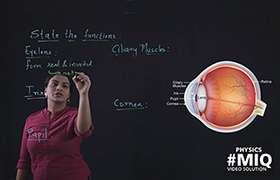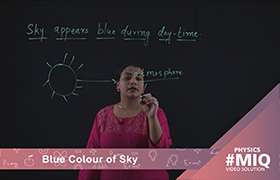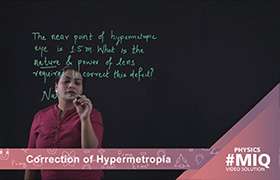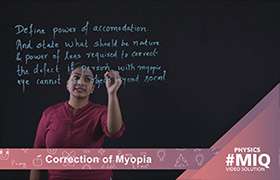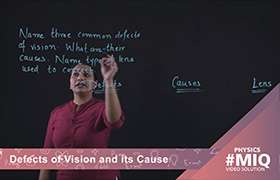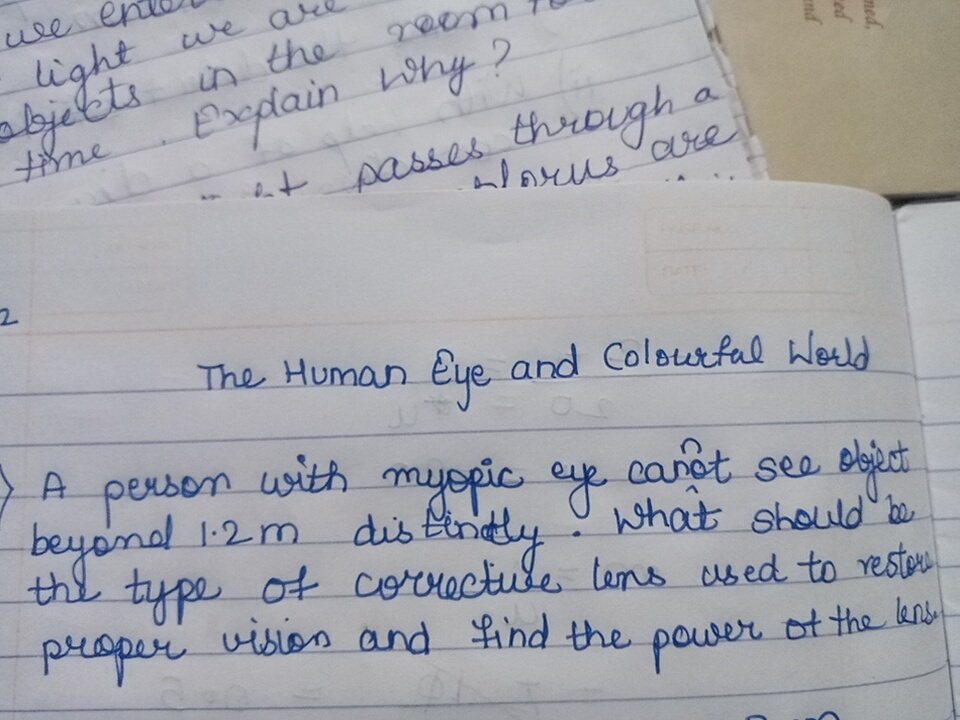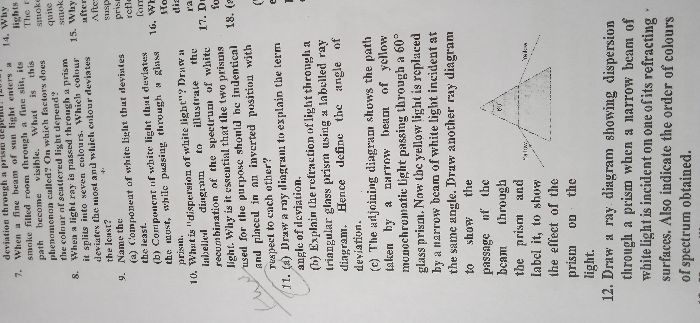CBSE Class 10 Answered
A glass prism is able to produce a spectrum when White light passes through it but a glass slab does-not produce any spectrum. explain why is it so?
Asked by | 20 Feb, 2011, 04:45: PM
Dear student
In a parallel glass slab, the rays are refracted at both the parallel sides. They net refraction of the light results in only the lateral displacement of the light & net deviation of the light to be zero.
In case of a prism, due to its angular sides, there is a net deviation produced.
So in case of a prism, when a white light passes through each of the constituent wavelength of light undergoes different extent of deviation. this results in the dispersion of white light into its constituent colours.
On the other hand, the light through the parallel sides of glass slab, each contituent wavelength of white light doesnot undergo any net deviation. Hence the white light does not split into consituent spectrum.
We hope this clarifies your query.
Regards
Team
TopperLearning
Answered by | 20 Feb, 2011, 08:32: PM
Application Videos
Concept Videos
CBSE 10 - Physics
Asked by saritavishwakarma1986 | 04 Jan, 2024, 12:23: PM
CBSE 10 - Physics
Asked by udaykuna006 | 16 Jul, 2023, 07:20: PM
CBSE 10 - Physics
Asked by bhu.joshi54 | 08 Aug, 2022, 07:36: PM
CBSE 10 - Physics
Asked by sunnysuketu | 26 May, 2022, 08:33: PM
CBSE 10 - Physics
Asked by sunnysuketu | 26 May, 2022, 08:33: PM
CBSE 10 - Physics
Asked by abhishekuppala598 | 06 Feb, 2022, 09:30: PM
CBSE 10 - Physics
Asked by Ankit9142110345 | 20 May, 2021, 09:58: PM
CBSE 10 - Physics
Asked by drishtidixitb | 13 Mar, 2021, 02:31: PM

